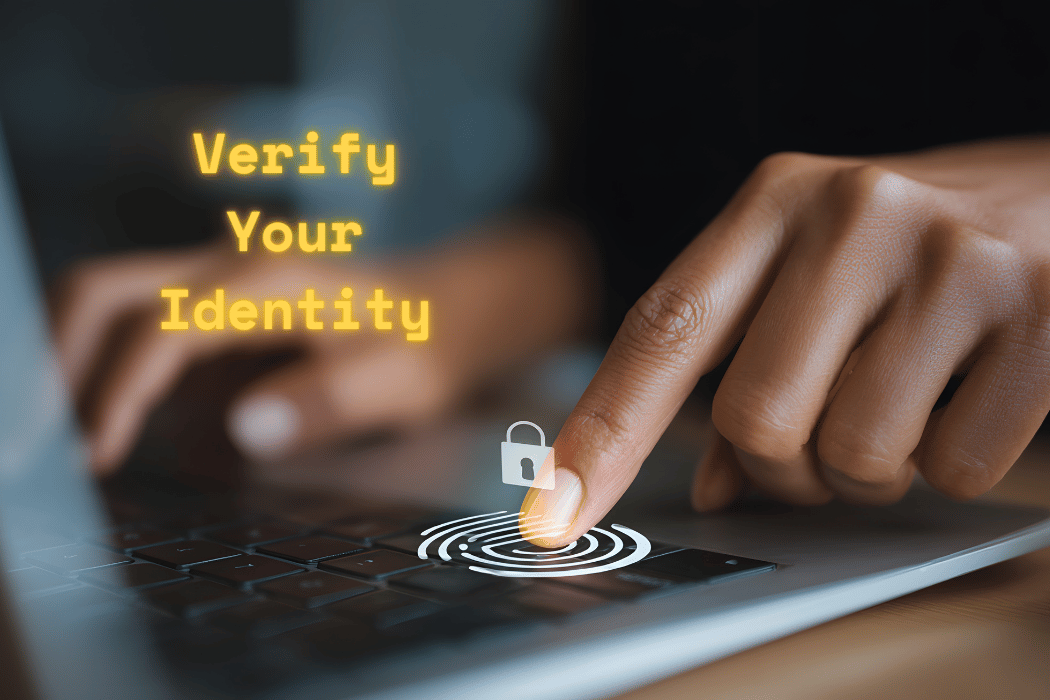
It was just a few years ago when we all thought deepfakes were a fun social media novelty. Today? Small business owners aren’t laughing anymore.
Recent studies reveal that 62 percent of organizations have experienced AI-driven attacks over the past year, and small businesses like yours are incredibly vulnerable. Deepfake technology has matured into a sophisticated weapon. It’s time to understand this growing threat and adopt a system of digital identity verification that will protect both you and your customers.
Today’s deepfakes are more advanced and more dangerous
Deepfake technology has evolved beyond simple face swaps. Today, with off-the-shelf AI tools and a few online tutorials, almost anyone can create convincing videos and audio clips. What do they need? Just 20 seconds of audio to create a simulation that mimics a person’s tone and inflection, and a few minutes of video to insert that person into a highly realistic clip.
These fabricated digital impersonations can easily make it appear that you said or did something that never happened. Just look at the recent example where CNN’s Dr. Sanjay Gupta went on air to disprove a deepfake video of himself announcing a breakthrough in Alzheimer’s research.
Celebrity deepfakes grab headlines, but what about the growing number of scams we never hear about? Many are targeting small businesses.
Unlike large corporations equipped with security teams and advanced detection tools, small businesses often lack the resources to detect and prevent these attacks. Imagine waking up one morning to an inbox full of emails from people shocked by a recent video. Maybe you are horrified to find a video of yourself authorizing a fraudulent wire transfer. Or maybe you sit stunned while watching yourself make a customer service message that irrevocably tarnishes your business’s hard-earned reputation. Without media coverage to set the record straight, you and many other small businesses will be left defenseless in the face of these digital assaults.
The problem with traditional online verification
A system allowing you to authenticate each social media post and email would prove your digital identity to customers and debunk the deepfakes. It would also enable you to verify the identities of everyone interacting with your small business.
The problem? Traditional verification systems can be highly invasive. For example, many platforms now require users to display their government-issued IDs while recording a live webcam video to verify their identity. While these methods seem effective on the surface, submitting biometric data like facial scans comes at a steep cost to privacy and security. It inadvertently supplies hackers with all the high-quality biometric data and images they need to create convincing deepfakes.
For a small business, collecting and storing this sensitive personal information is a liability minefield. Data breaches happen all the time. Even Google was recently hacked. Ironically, all that high-quality biometric data can be misused to create ever-more-realistic deepfakes. Put simply? These verification systems fuel the very problem they were meant to solve.
But what if a system allowed you to verify that you are who you say you are without surrendering any invasive data at all? The good news? You can. Cryptographic signatures and blockchain technology now authenticate digital identities and protect privacy.
Cryptographic signatures: Verifying identity without revealing private data
Your cryptographic digital signature relies on two keys. One is a secret key that you keep private. The other is a public key that anyone can access.
When you want to prove that an email, social media post, or contract came from you, you use your secret key to “sign” it.
This signature is mathematically unique and attached to your content. Anyone can then use your public key to validate the signature.
Only you hold the secret key. This fact ensures that no one else can create valid signatures on your behalf. It allows you to prove your digital identity without ever exposing your face, fingerprints, or personal documents online.
Blockchain: Revolutionizing trust in identity verification
Cryptographic signatures sound perfect until you ask one question. How do you trust that a public key really belongs to the person it claims to? You need a trusted list linking public keys to the people and organizations they belong to. We call this list a public key infrastructure.
Traditionally, this infrastructure has been controlled by either a large government or a company. But there’s a problem. These authorities have the power to change the list, and they can do it without the key’s owner even knowing. This creates uncertainty and opens the door for exploitation.
Here’s why we need blockchain technology. Unlike centralized databases, a blockchain is a decentralized, tamper-resistant ledger maintained by multiple participants worldwide.
If you are the owner of a secret key linked to an identity recorded on the blockchain, only you can update or change the associated public key. No one can arbitrarily modify or revoke your digital identity without your consent. The connection between your identity and your public key is public and unchangeable.
Why small businesses must adopt privacy-first digital identity verification now
Deepfakes are growing so sophisticated that visual or audio clues alone can no longer guarantee authenticity. For small businesses without dedicated security teams, falling victim to AI-fueled impersonation could mean financial fraud, reputational damage, or loss of consumer trust.
Trust is critical for every successful business. But as deepfakes grow increasingly convincing, small business owners must build that trust through technology that respects privacy and ensures authenticity.
The tools exist today. Best of all? They are readily accessible to small businesses.
Cryptographic digital signatures combined with blockchain-based public key infrastructure enable a new standard of digital identity verification. It ensures that you are who you say you are without compromising your personal data. Just as antivirus software became indispensable in the age of malware, these new verification tools are the next critical defenses against AI-driven deception.













